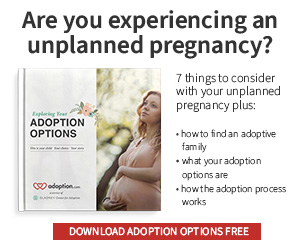Pregnancy is a time of growing for both you and the baby, emotionally and physically. During pregnancy, you’ll discover that there are many prenatal screening tests that your doctor will recommend. While pregnancy can be an amazing experience, watching your body change and accommodate your growing baby, remember that every woman’s experience is unique. The same is true for prenatal screening tests. Your specific doctor and your exact situation will determine which tests you will have.
It may be an overwhelming experience going to the doctor—especially if this is your first pregnancy. One way to remain calm and collected throughout your pregnancy journey is to be prepared with the knowledge of what may happen. If you are aware of the common prenatal screening tests, you’ll be able to ask relevant and applicable questions. This way, you can make an informed decision after studying your options for your pregnancy.
Doctors perform prenatal screening tests because it can identify if there are any health issues or conditions for both you and your baby. Some of these health issues can be treated right away, if caught early on, and some will help you prepare for other issues that may arise due to health problems—this includes heart conditions, genetic or chromosomal setbacks and so on. Prenatal screening tests also include finding out the gender, general size, placement within the uterus, and age.
Below is a list of some common prenatal screening tests. Keep in mind that there are many other possible tests that your doctor may suggest.
Ultrasound Testing: This common test helps determine if your pregnancy is an ectopic or tubal pregnancy. If you experience complications or bleeding during your pregnancy, ultrasound testing may be one of your options, since it can also help understand the baby’s vitality. Before the ultrasound, you’ll be asked to drink a specific amount of water—dependent upon your doctor and what he or she needs—so that you’ll have a full bladder. A full bladder makes it easier to see your uterus and your baby. Ultrasound testing can be performed throughout the entirety of your pregnancy.
Glucose Tolerance Testing: This test is to determine whether or not you suffer from gestational diabetes. It usually can be determined around the 28th week of pregnancy. However, if diabetes runs in your family, you can be tested earlier than the 28 week mark. This is also true if you’ve been diagnosed with gestational diabetes in a previous pregnancy.
Pregnant and considering adoption?
Get your free adoption benefits and support bundle

Stress Test: The Stress Test will help your doctor understand and prepare for how your baby will react to the stress of contractions during the labor and delivery. This test is commonly completed toward the end of your pregnancy, before labor and delivery. If your child does not pass the stress test, induction or a cesarean section may be viable options.
Non-Stress Test: Like the Stress Test, the Non-Stress Test is usually performed at the end of your pregnancy. This test may be given if you have gone past your due date, if you’ve had issues or problems in previous pregnancies, or if the doctor needs to confirm the well-being of your child.
Nuchal Translucency Screening: Usually performed between pregnancy weeks 11-14, the Nuchal Translucency Screening is designed to detect heart abnormalities and Down Syndrome. Like many of the other common prenatal screening tests, this test can help you prepare for any special care that your child may need—whether that is prenatally or after birth.
Prenatal screening tests are very important for a healthy and happy pregnancy. While they may seem like a nuisance because of the frequency, it is beneficial for both you and your growing child. Consider them preventative. It is better to know sooner rather than later if there is a health concern or issue. Being prepared can help protect you and your child, and isn’t that of the utmost importance?


